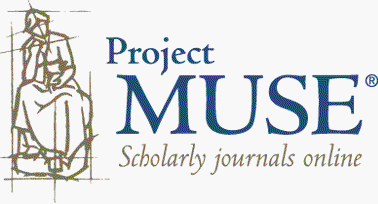
Users and libraries may download, print, and make unlimited paper copies for archival purposes, or for educational or personal use. Users may distribute a copy ... to a person at another location for that individual's personal use.
Little Review
(on) Barry Allen, Knowledge and Civilization,
with a foreword by Richard Rorty (Boulder, CO: Westview, 2004), 342 pp.
This volume is, in fact, two quite separate and separable books gathered under a single title, one of them, "Knowledge," original, incisive, and brilliantly argued; the other, "Civilization," derivative, dubious, and haphazardly assembled.
The first (chapters 1–5), clearly the main concern of Allen, who is a philosopher, and an extraordinarily wide-ranging and creative one, as well as an exceptionally clear writer, sets forth an "artifactual" conception of knowledge as constructed and mediated by cultural devices that "focus [it] . . . record it, test it, translate it, demonstrate and apply it." The received, "epistemological," notions of knowledge as "contemplative transparency," of truth conceived as "the correspondence of thought with reality," are systematically criticized, and the more prominent attempts to transform them toward more activist, instrumentalist viewsby Nietzsche, Dewey, Foucault, Rortyare evaluated both in terms of their successes in doing so and their remaining weaknesses. Allen is especially good on Foucault and Rorty, fully appreciating the revolutionary quality of their writings and perceptive concerning the ambiguities and perplexities they leave unresolved.
The second, shorter and more hectic, section (chapters 6–8) seems almost a repudiation of the first, or perhaps a mere mythologization of it: an attempt to provide a synoptic summary of the evolution of human knowledge from the appearance of the human brain and hand 2 or 3 million years ago, through the agricultural and urban revolutions, on to the hypercivilized present. He borrows highly generalized and compacted ideas from biology (Lewontin, Gould), sociology (Elias, Weber, Latour), linguistics (Deacon, Bickerton), psychology (Premack), and anthropology (Rappaport) to construct a breathless and moralized story of "the increasingly convoluted nexus between science, technology, and society" that far outruns its scholarly base.
Half a book, especially when the half is as good as this one is, is better than none. But there are temptations to comprehensiveness that even philosophers should resist.
Clifford Geertz
Clifford Geertz's books ó which include The Interpretation of Cultures, Works and Lives, Local Knowledge, After the Fact, Available Light, Islam Observed, Negara, The Religion of Java, and Meaning and Order in Moroccan Society ó have been translated into twelve languages. He is Harold F. Linder Professor of Social Science Emeritus at the Institute for Advanced Study, Princeton. Clifford Geertz by His Colleagues, edited by Richard Shweder and Byron Good, was published recentlyClifford Geertz
in: Common Knowledge 12.3 (2006) 525-526; Copyright © 2006 by Duke University Press. All rights reserved.
online source: http://muse.jhu.edu/journals/common_knowledge/v012/12.3geertz.html
 |
copyright regulations: Users and libraries may download, print, and make unlimited paper copies for archival purposes, or for educational or personal use. Users may distribute a copy ... to a person at another location for that individual's personal use. |
Using this text is also subject to the general HyperGeertz-Copyright-regulations based on Austrian copyright-law (2001), which - in short - allows a personal, nonprofit & educational (all must apply) use of material stored in data bases, including a restricted redistribution of such material, if this is also for nonprofit purposes and restricted to the scientific community (both must apply), and if full and accurate attribution to the author, original source and date of publication, web location(s) or originating list(s) is given ("fair-use-restriction"). Any other use transgressing this restriction is subject to a direct agreement between a subsequent user and the holder of the original copyright(s) as indicated by the source(s). HyperGeertz@WorldCatalogue cannot be held responsible for any neglection of these regulations and will impose such a responsibility on any unlawful user.
Each copy of any part of a transmission of a HyperGeertz-Text must therefore contain this same copyright notice as it appears on the screen or printed page of such transmission, including any specific copyright notice as indicated above by the original copyright holder and/ or the previous online source(s).